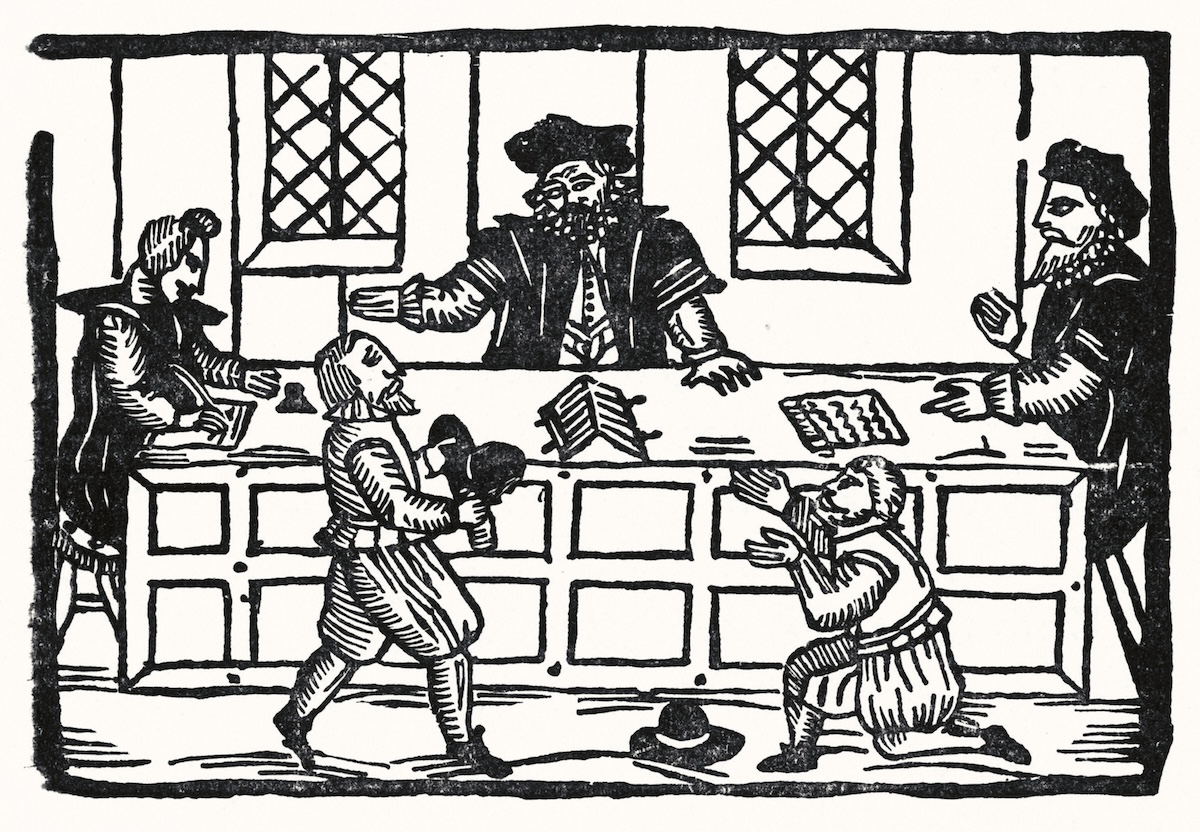The Tudor War on Libel
As rude rhymes and rumours threatened reputations, the Elizabethan government attempted to regulate barbed language.

In April 1605 the Court of Star Chamber – the Privy Council sitting in its judicial capacity – heard a curious case. As in all cases tried in this prerogative court, evidence was produced by means of petitions, interrogatories and depositions drawn from plaintiffs and defendants. These were pre-digested by councillors who then sat publicly, under the gilded stars on the ceiling of the chamber at Westminster, to deliberate. In this case, one Henry Cunde, the vicar of Montford, sought justice. Cunde had a reasonable grievance. His wife, Joan, had been viciously libelled by Thomas and John Browne. As a result, the unfortunate woman’s reputation had been ruined. She had, in fact, suffered ‘such inward grief and sorrowe that she presentlye fell sicke and pyned, wasted and consumed away, and shortly afterward dyed’. Words, it seemed, could have devastating effects – and slander was everywhere.
